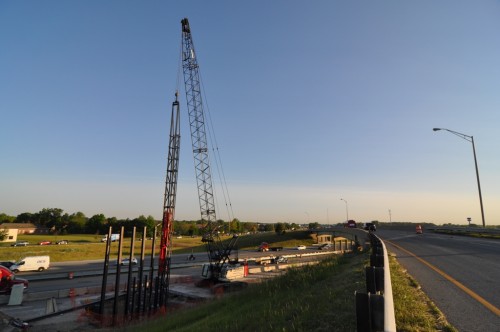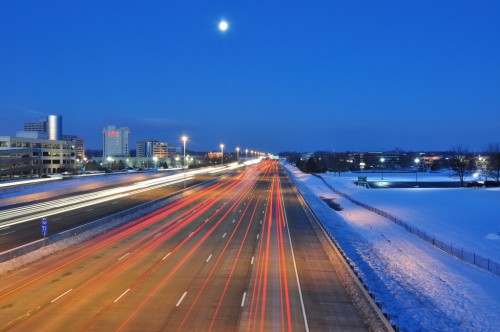Over the last 4 years, I have visited many peer cities. Some bigger than Indy, some smaller. My quest has been to document transit systems, how they work, why they work well, and how all of this could apply to Indianapolis and making it a better city to live in. Using this knowledge for civic activism has driven me weary to the point of late nights, meetings, etc and my wife telling me that someday I need to get a job doing this. While that would be excellent, for the time being I remain a dedicated citizen activist. To be sure, investment in urban transit is expensive and is a risky bet if not done properly. However, when successful, the entire transportation philosophy of a city and region can be affected positively, when compared next to investment in roadways. Competition for funds is fierce with roadways accumulating the vast majority of funds through gasoline taxes or other dedicated funding sources; transit is often left to either raising taxes through referendum, special taxing districts, etc.

So, you can imagine the disdain that brewed in my head when I read the recent headline, “Indiana to pay $255 million for freeway tunnel in Kentucky” referring of course, to the punching bag that is the Ohio River Bridgesproject in the Louisville metro area. At issue, is the over $1.5 billion being spent on this project by Indiana, and more specifically, $255 million that Indiana is paying to construct a tunnel in Kentucky; literally south of the border.

Why is our state paying this much money for new roadway, in Kentucky no less, when we our state roadway budget is already strapped for cash and very little is dedicated to public transit? State officials are banking on what they believe will be a tremendous economic development potential along this new stretch of roadway. Read that again: Indiana is betting on a return on investment by building roads.
We here are Urban Indy, dispute that this will be the case and that the classic story of urban freeway-lead suburban sprawl will continue, leading to further disinvestment in downtown Louisville, and increased upkeep costs of the new roadway itself plus additional infrastructure that comes with it. With ample development property available in Lousiville’s core, why are we pushing investment to the outskirts? Our friend Aaron Renn, The Urbanophile, has covered this topic in depth at his blog if you want further details.

The bigger question though is, at what point do state DOT’s concede that deferring the money to build roadways to say, urban transit options instead, would be a smarter decision? Recent history shows that this is rarely happening and in some cases, that money for urban transit is being pulled in a hostile fashion and re-purposed for roadway construction; Cincinnati and its streetcar come to mind as a recent example where state DOT yanked $50 million in promised state funds under a new GOP governor who took office.
Simply put:
“If we don’t build this tunnel, we save $255M. Likewise, if we didn’t build the other new roads, we would save billions more”
Is Louisville really lagging economically because these bridges are deficient, or that the east side bridge does not exist? My gut tells me no and that this is another classic case of state DOT road building. If the real answer is that this is for economic development purposes, there are many examples that show how investment in urban transit leads to significantly more efficient development patterns, environmental sustainability, tremendous savings on personal transportation expenses and healthy lifestyles.
When will we figure this out in Indiana? Indiana, please spend my tax dollars more wisely.
“Power concedes nothing without a demand. It never has, and it never will.” Frederick Douglas
This is the law of inertia. DOT’s are powerful, and the people have yet to demand anything other than more roads. Why? Because most people, at least in Indianapolis, have very little experience with any other mode of transportation. What little experience they may have with IndyGo is largely negative. Until we have a true leader and/or mass movement on this issue, nothing will change, I’m afraid.
Central Indiana does not understand transportation sadly.
The only choice you really have is to live in a neighborhood where you can be somewhat car free. There has to be a lifestyle shift from the people because the elected officials are fine with the status quo and widening highways.
Follow the money. Gravel, asphalt and engineering firms are major campaign contributors to our current governor and legislature.